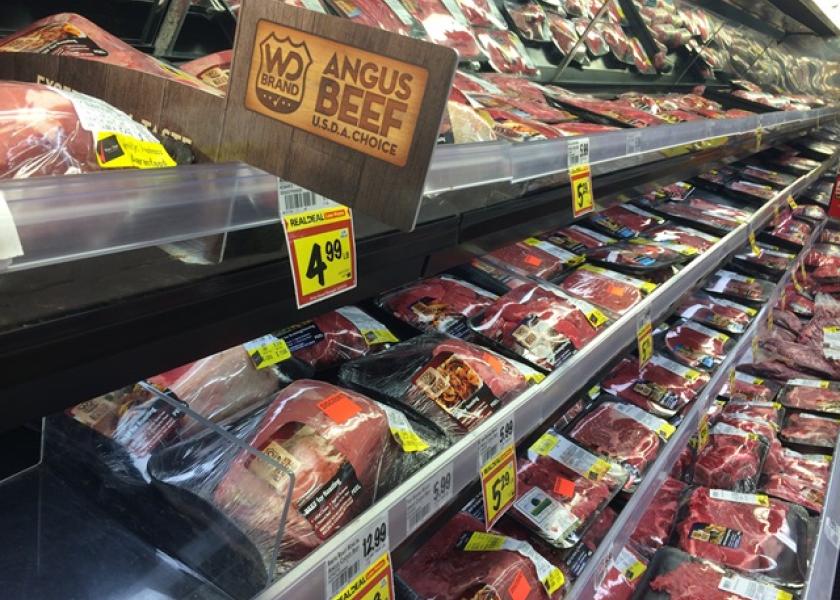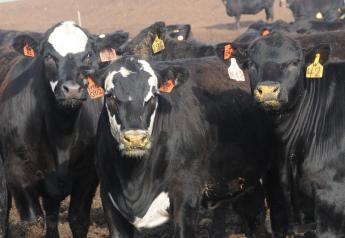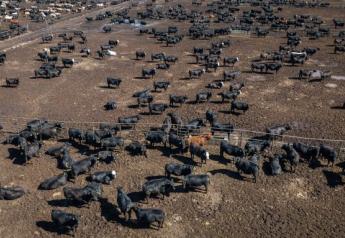Shoppers Could Have Difficulty Finding Meat's Origin

Shoppers could soon have a harder time finding out where some of their red meat comes from.
The World Trade Organization ruled Monday that U.S. "country of origin" labels on certain cuts of red meat put Canadian and Mexican livestock at a disadvantage, rejecting a U.S. appeal after a similar WTO decision last year. The current labels on packages of steaks and some other meats say where the animals were born, raised and slaughtered.
The Obama administration has already revised the labels once to try to comply with previous WTO rulings in favor of Canada and Mexico. Now that the revised labels have also been struck down, Agriculture Secretary Tom Vilsack says Congress will have to change the law to avoid retaliation — such as extra tariffs — from the two neighbor countries.
"Congress has got to fix this problem," Vilsack said after the decision. "They either have to repeal (country of origin labeling) or modify and amend it."
Though the ruling went against the U.S., it's a victory for the U.S. meat industry, which has said the labels are costly because of segregation of livestock and record keeping. After the decision, meat processors quickly called for a full repeal of the labeling laws.
Canada and Mexico issued a joint statement also calling on the United States to repeal the labeling rules. The two countries said they will seek authorization from the WTO to take retaliatory measures against U.S. exports.
The joint statement of Canadian and Mexican agriculture and trade officials said the rules cause Canadian and Mexican livestock and meat to be segregated from those of U.S. origin — a costly process that has forced some U.S. companies to stop buying exports. The labeling is "damaging to North America's supply chain and is harmful to producers and processors in all three countries," the officials said.
The two countries said they would "continue to work closely" on the issue with the United States.
The National Farmers Union, a farm group that has backed the country of origin labels, said negotiations would be better than congressional intervention.
"As we have seen in other disputes, once decisions are handed down, WTO members often work together to find a solution that will work for them," said National Farmers Union President Roger Johnson. "In this case, such a solution must involve continuation of a meaningful country-of-origin labeling requirement."
Congress required the labels in 2002 and 2008 farm laws, mostly at the behest of ranchers in the northern United States who compete with the Canadian cattle industry. Originally, the U.S. Department of Agriculture allowed the labels to say simply "Product of U.S." or "Product of U.S. and Canada," but the WTO rejected that approach in 2012.
USDA then revised the labels and made them more specific in an attempt to win WTO approval. Now the labels say, for example, that the animal that produced the meat was "born in Mexico, raised and slaughtered in the United States" or "born, raised and slaughtered in the United States."
The WTO rejected those revised rules last year, and the United States filed one last appeal, rejected Monday by the WTO.
Tim Reif, chief counsel for the U.S. Trade Representative, said the administration is "considering all options going forward, and will continue to consult with members of Congress and interested members of the public regarding possible next steps."
The Republican chairmen of the House and Senate Agriculture Committees have indicated they are ready to step in on the issue. Both Texas Rep. Mike Conaway and Kansas Sen. Pat Roberts have supported past efforts to repeal the labeling laws, siding with the meat industry.
Conaway said in a statement he will hold a hearing this week for members of the House panel to weigh in on the issue.
"As retaliation by Canada and Mexico becomes a reality, it is more important now than ever to act quickly to avoid a protracted trade war with our two largest trade partners," Conaway said.
Republican Rep. Rick Crawford of Arkansas, a member of the House agriculture panel, introduced a bill to repeal the law after the decision was announced Monday.
Roberts also said he would move swiftly to try and find a solution. He said retaliation could mean billions of dollars in tariffs on U.S. exports.
"Those costs will be passed on to consumers," Roberts said.







